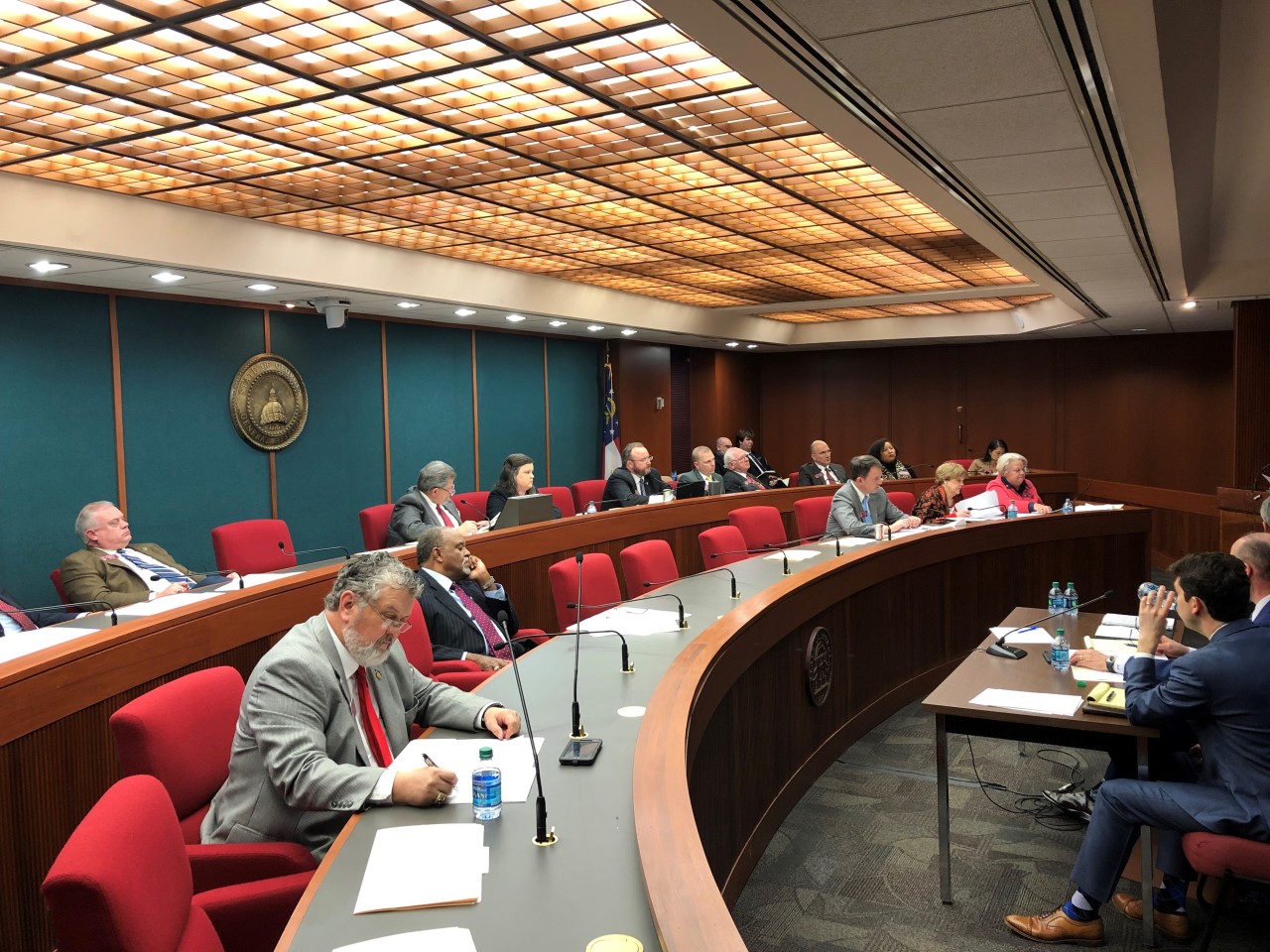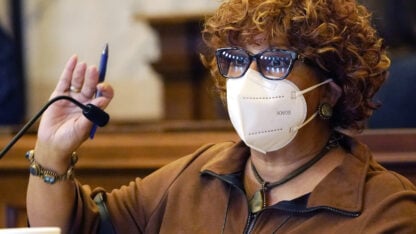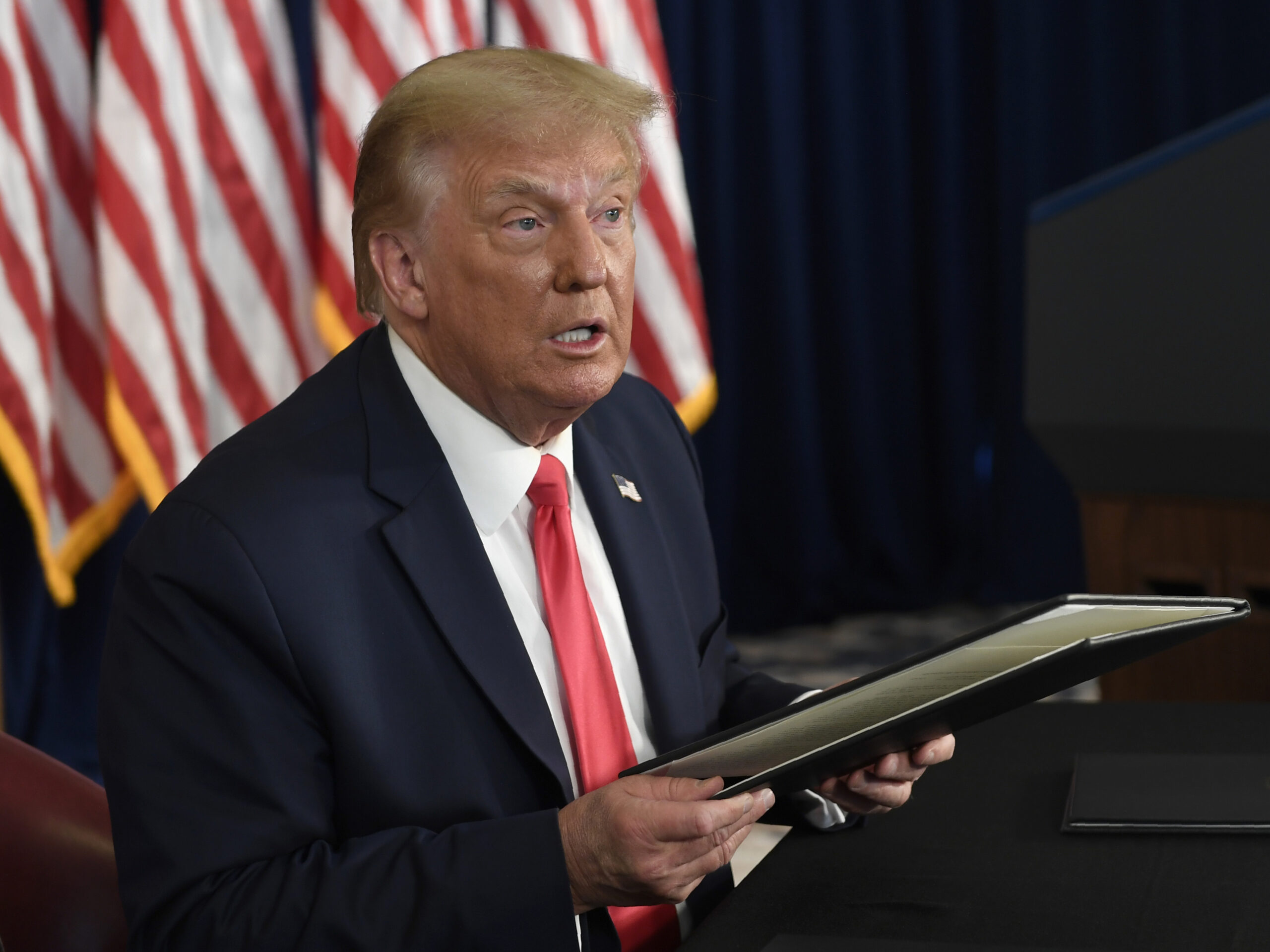Election Bill Brings Out Angst And Distrust After Georgia’s 2018 Midterms

Lawmakers spent hours listening to public testimony about a bill that would dramatically change how voting works in Georgia.
Johnny Kauffman / WABE
A bill to dramatically change how voting works in Georgia is quickly moving through the state legislature, dividing Republicans and Democrats, and renewing spats over the administration of the 2018 midterms in the state.
HB 316 would require electronic machines that print paper ballots be used statewide for in-person voting. That setup would likely include a touchscreen, like Georgia’s current voting machines.
“Our current system of a touchscreen is what our voters in Georgia have gotten accustomed to and have used successfully,” said Republican state Rep. Barry Fleming, the bill’s lead sponsor. “My goodness, how many times do we touch a screen everyday on our phone, we’re used to that.”
Unlike the current system, the new electronic machines would print paper ballot that would be scanned and deposited in a ballot box for potential audits or recounts.
New Republican Secretary of State Brad Raffensperger supports the bill, and said his staff were involved in drafting it.
“We’re going to get more accurate election results,” he said, “And I think it’s a more secure way moving forward.”
Democrats oppose the bill. They want Georgia to vote using hand-marked paper ballots that would be scanned and deposited in a box for potential audits or recounts.
“One thing we heard clearly in two days of testimony is that Georgians want to have their faith and confidence restored in the voting process,” said Democratic Minority Leader Bob Trammell. “We think hand-marked paper ballots are the best way to do that.”
The House Governmental Affairs committee on Thursday approved the bill 13-6. It still needs to clear the House and Senate before it goes to Gov. Brian Kemp for his signature or veto.
The bill is not only about voting technology. It includes a number of provisions that would alter other areas of election law, some that Democrats support.
For example, polling places could not be changed 60 days before an election, under the bill.
And it would lengthen the process through which individuals are removed from the voter registration list if they don’t vote or respond to notifications from the Secretary of State’s office. The bill adds a final notification before removal, and would process would ultimately take nine years instead of seven.
In the aftermath of the 2018 election, federal courts issued multiple rulings about Georgia’s handling of provisional and absentee ballots, as well as voter registration applications. These rulings came after lawsuits from Democratic candidate for governor Stacey Abrams, and groups that advocate for expanding voting access.
The bill puts into law portions of those rulings.
For example, when an absentee ballot is rejected, voters would have until three days after the polls close to fix the issue and ensure their votes are counted.
In a committee hearing, Republican Rep. Fleming was asked why he included provisions that have the support of Democrats, and would expand access to voting.
“I’m trying to get you to vote for the bill,” Fleming said.
The Thursday committee hearing on HB 316 became a platform for rehashing of debates over the management of the 2018 election, with both Democrats and Republicans raising concerns that the other party was undermining public trust.
“We’ve heard from a lot of the public, and it seems that there’s a common theme of public mistrust,” said Democratic Rep. Bee Nguyen. “What are we going to put in place to restore public trust?”
Republicans implied Democrats and the news media were responsible for undermining trust in Georgia’s elections.
“What was most disappointing to me in the last election,” said Fleming, “is that it seemed to me that at least one candidate for governor was determined to undermine the faith Georgians had in their voting system.”
Kemp did not resign from his role as Secretary of State overseeing Georgia’s 2018 elections despite calls for him to do so from Democrats and others.
Abrams opposes HB 316, and has regularly appeared on national media, questioning how the 2018 election was handled.








